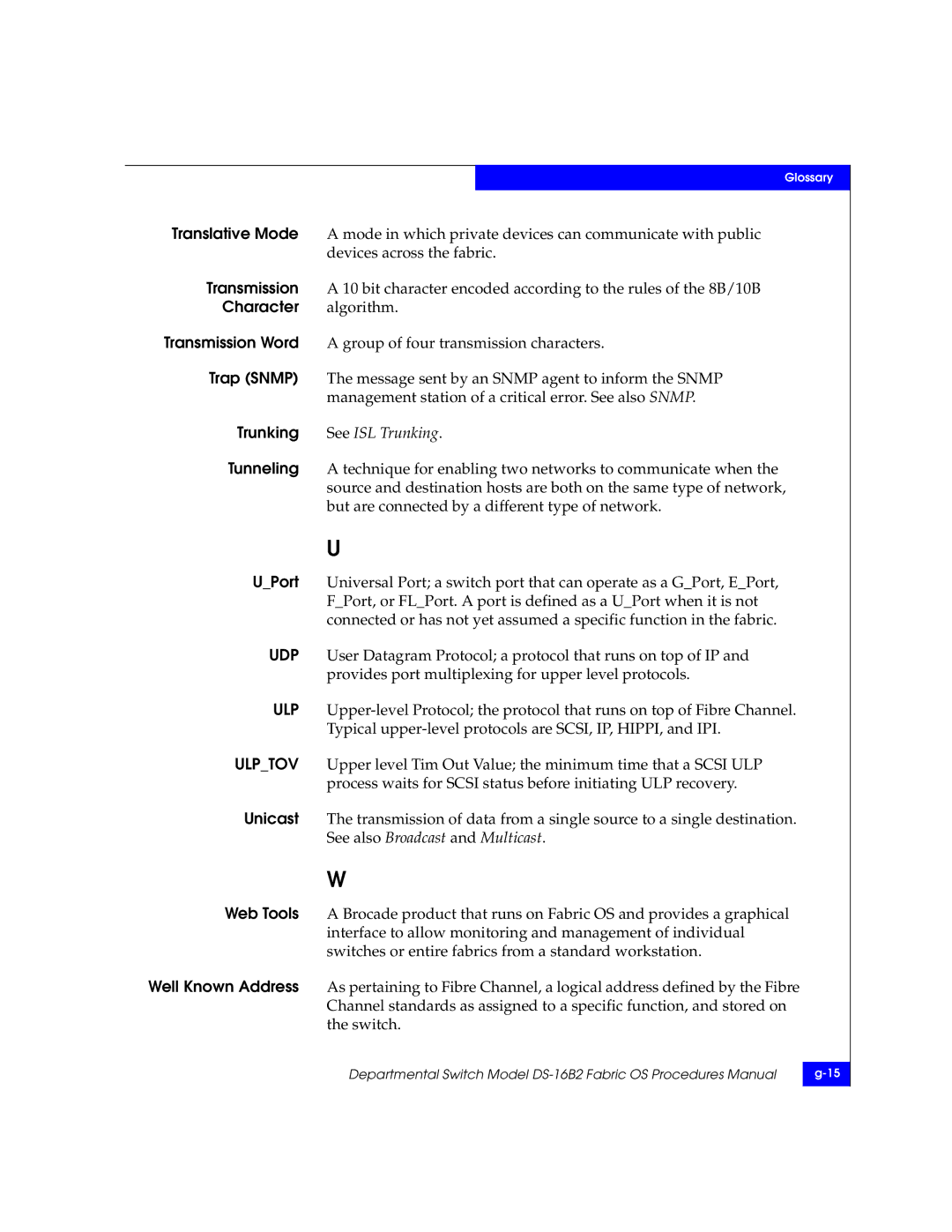
Glossary
Translative Mode | A mode in which private devices can communicate with public |
| devices across the fabric. |
Transmission | A 10 bit character encoded according to the rules of the 8B/10B |
Character | algorithm. |
Transmission Word | A group of four transmission characters. |
Trap (SNMP) | The message sent by an SNMP agent to inform the SNMP |
| management station of a critical error. See also SNMP. |
Trunking | See ISL Trunking. |
Tunneling | A technique for enabling two networks to communicate when the |
| source and destination hosts are both on the same type of network, |
| but are connected by a different type of network. |
| U |
U_Port | Universal Port; a switch port that can operate as a G_Port, E_Port, |
| F_Port, or FL_Port. A port is defined as a U_Port when it is not |
| connected or has not yet assumed a specific function in the fabric. |
UDP | User Datagram Protocol; a protocol that runs on top of IP and |
| provides port multiplexing for upper level protocols. |
ULP | |
| Typical |
ULP_TOV | Upper level Tim Out Value; the minimum time that a SCSI ULP |
| process waits for SCSI status before initiating ULP recovery. |
Unicast | The transmission of data from a single source to a single destination. |
| See also Broadcast and Multicast. |
W
Web Tools A Brocade product that runs on Fabric OS and provides a graphical interface to allow monitoring and management of individual switches or entire fabrics from a standard workstation.
Well Known Address As pertaining to Fibre Channel, a logical address defined by the Fibre Channel standards as assigned to a specific function, and stored on the switch.
Departmental Switch Model
